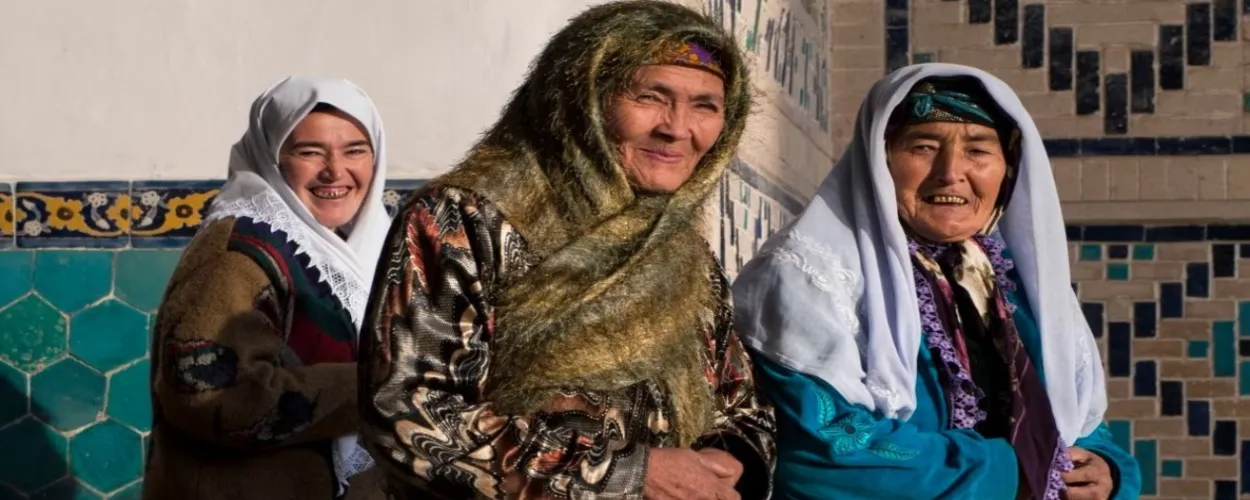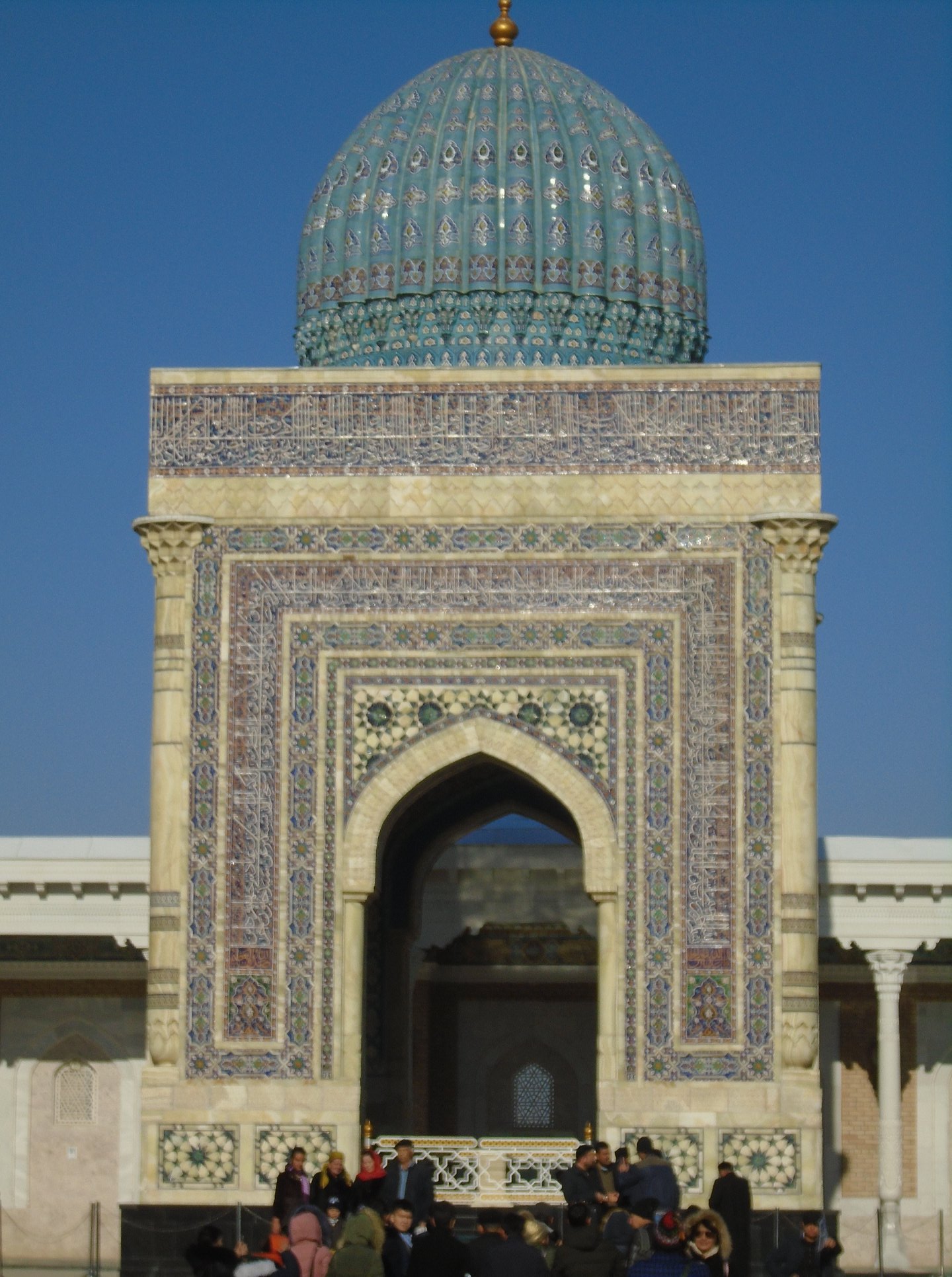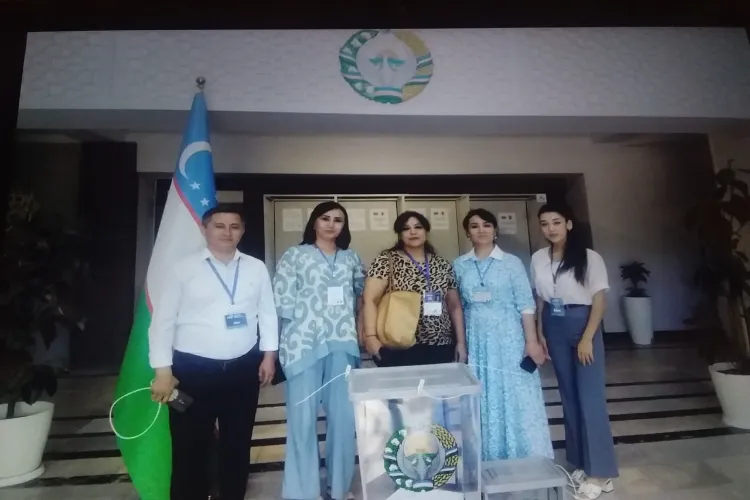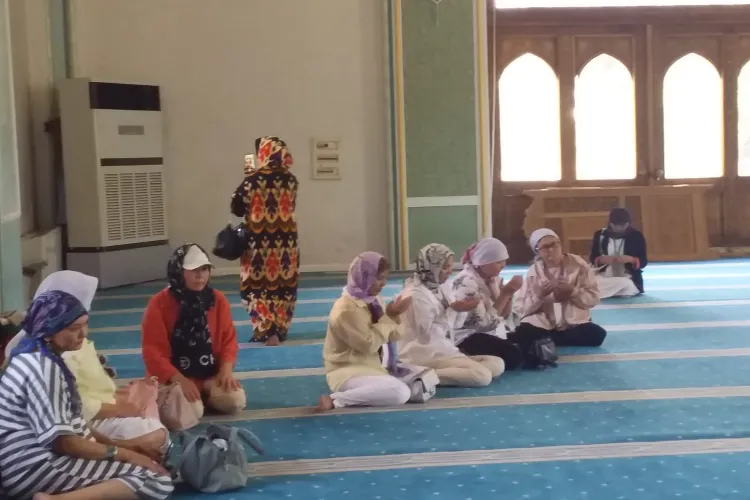
Aditi Bhaduri
Recently, the Grand Mufti of Uzbekistan Nuruddin Kholiknazarov, pronounced that Islam does not have a strict dress code. "We have overdone the culture of wearing (religious) clothing. An opinion has been formed that Islam implies wearing certain clothes and a certain appearance. There is a rule left to us by our Prophet. Islam does not have a specific form, it is impossible: it is not a religion of one nation, it is not a religion of one climate,” the mufti explained.
He quoted Prophet Muhammad: “Verily, Allah does not look at your appearance or your wealth. Islam is sent to all humanity".
The Grand Mufti's pronouncement is a reflection of the larger Uzbek's desire to retain its Uzbek identity along with being Muslim. Uzbekistan is a unique country. It is a Muslim-majority country with a rich Islamic heritage. It is the birthplace of some outstanding personalities in the Muslim world like Imam Mohammad Ibn Ismail al-Bukhari, the first compiler of the Hadiths (the traditions of Islam's Prophet Mohammed), and Bahauddin Naqshbandi, the founder of the Naqshbandi Sufi order.

The moseleum of Imam Mohammad Ibn Ismail al-Bukhari
In medieval times the cities of Bukhara and Samarkand were famed as centres of Islamic learning. At the same time, Uzbeks do not tire of mentioning the fact that Islam in that part of the world has always been different, more tolerant, and softer. It's the result of the impact of numerous different traditions and cultures that crossed paths there along the ancient Silk Route that ran through its territory. Later the territories were colonized by the Russian Tsarist Empire and when the Union of Soviet Socialist Republics (USSR) was created it was incorporated as one of the Republics.
The Soviet rule turned out to be both a blessing and a curse. While communism chipped away at religion and religiosity, even driving it underground, it could not erode the strong foundation of religion in people's hearts. At the same time, the Soviets brought in universal literacy, industrialization, infrastructure, and women's empowerment.
Fast forward to the present - Uzbekistan, the most populous state of Central Asia with 35. 3 million people, situated entirely on the Asian continent, sharing a border with Afghanistan, has women present and active in every sphere of life - politics, academia, media, agriculture, industry, health care, hospitality, arts and crafts, etc. Just across the border Afghan girls are struggling to go to school.

Author (Third from left) with Uzbek teachers in Tashkent
How has this been possible? It has not been easy, says Uzbek political scientist Bektosh Berdiev, who now serves in the Ministry of Innovative Development of the Republic of Uzbekistan and is currently Dotsent at the International Islamic Academy of Uzbekistan, Tashkent. When Uzbekistan emerged as an independent sovereign country from the rubble of the former USSR, it was immediately confronted by the spillover effects of the Afghan jihad. Many Uzbeks had fought within the ranks of the Soviet army and had become radicalized, wanting to establish Sharia law inside their own country.
The ascendance of the Taliban in Afghanistan worsened matters as jihadi groups found shelter with them. Groups like the Islamic Movement of Uzbekistan (which has now morphed into the more ambitious-sounding Islamic Movement of Turkestan) waged war against the Uzbek government to establish Islamist rule in Uzbekistan.
Simultaneously, Uzbekistan faced other threats too. Evangelical groups like Hizb-ut-Tahrir began to work quietly to spread its ideology. It also wants to install Sharia law without the use of armed struggle. Islamist preachers and funds from the Arab world, Pakistan, and Turkey began to pour into the country. The Nurchilar schools funded by Turkey in particular opened up a Pandora's Box not just in Uzbekistan but other Central Asian countries too. Finally, they were banned by governments across the region. The government of then-President Islam Karimov waged a long and hard battle on multiple fronts to crush these forces. More recently the Islamic State (ISIS) made some inroads and recruited fighters to go to Iraq and Syria.
Uzbekistan faced much criticism in the international arena but did not give up. And in this, the state was aided by the will of the people. With independence, more Uzbeks wanted to connect with their roots and pre-Soviet past and turned to religion, but at the same time did not want to give up the secular laws they had been used to.
The result is there for everyone to see. Returning to Uzbekistan after a gap of five years, I was amazed to see the infrastructural and other developments. Sparkling new official and residential buildings, more schools, and universities including a full-fledged university dedicated to journalism and media studies. The country boasts 97 per cent literacy and enrolment in higher education has increased from 9% to 38%. Uzbekistan is the second fastest-growing economy in the CIS and its GDP in 2022 touched 80.39 billion according to the World Bank. The health index is relatively positive, and in 2022 the poverty level fell to 14 percent from 17 percent in the previous year.
Indian Prime Minister Lal Bahadur Shashtri's memorial in Tashkent
Hotels, shopping complexes, and crafts villages had sprung up. The hospitality industry is thriving and Uzbekistan with its ancient history, exquisite architecture, rich handicrafts, and culture has emerged among the top international tourist destinations in the world with a manifold increased tourism footfall, providing greater employment opportunities for the local people. Connectivity within the country had increased with numerous bullet trains and flights connecting ancient cities like Khiva and Samarkand. Alcohol is freely available, as are nightclubs and discos.
Despite climatic and geographical limitations - Uzbekistan is double landlocked and climate change has produced water shortages - the country bustled with a sense of purpose. And women were at the forefront of this. From hotels to banks, municipalities to universities women are working shoulder to shoulder with the men folk.
In the presidential elections held this year, one of the candidates had been a woman - something still unthinkable in many Western countries. Women's participation in the country’s workforce is 40 percent (2022 data). There is no restriction on gender interactions, and no dress codes; both the hijab and the mini skirt co-exist peacefully. Uzbek women can freely travel within and out of the country without the permission of a male relative or a male escort.
Unlike earlier times, Uzbekistan has also a more liberal policy towards religion. People are free to practice Islam, go to the mosque, and pray as many times as they wish. In 2021 Uzbekistan amended the law to allow school girls to wear the headscarf. The number of mosques has also increased in the country with 2112 mosques currently registered with the government. More people are visiting mosques and performing Umrah and Haj in Mecca, Saudi Arabia.
Uzbekistan undertook a series of constitutional reforms this year. One of them was to announce the country to be ‘secular’. The amendments were subjected to a nationwide referendum endorsed by more than 80 percent of the electorate. "We are Muslims most of us, but none of us (women) want to see polygamy in our country," Zubeida, my interpreter who also teaches English and Hindi at the faculty of Philology at Tashkent University told me.
When I asked her if triple talaq was prevalent in Uzbekistan she stared at me blankly. Divorces in Uzbekistan are dealt with by the family courts; there is no concept of the triple talaq. Under-aged people are not allowed to go to Umrah.

Uzbek Women praying in mosque in Tashkent (Pic by Aditi Bhaduri)
When I asked her if triple talaq was prevalent in Uzbekistan she stared at me blankly. Divorces in Uzbekistan are dealt with by the family courts; there is no concept of the triple talaq. Under-aged people are not allowed to go to Umrah.
"Over the past few years, more people are going to mosques and many are praying five times a day. Many women have begun wearing the hijab as they feel free to do so and to experiment with fashion. When they want to stop wearing it, they similarly have the right to do so and many women have worn the hijab for a while and then stopped wearing it. This is a symbol of personal freedom and democracy of Uzbek society."
ALSO READ: India’s image as a major economic power cemented by G20
I could not agree more. Traveling around the country, struck by the people's joie de vivre, I could not help but think that Uzbekistan could well serve as a model Muslim country for others to emulate.
Aditi Bhaduri is a journalist and political analyst specialising on West and Central Asia.
